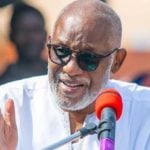LAST Wednesday, the Federal Executive Council (FEC) approved a new policy reintroducing toll plazas on some of the 35,000-kilometre highways and bridges in the country, together with the legal framework that will regulate the reintroduced initiative, 18 years after the plazas were dismantled by the Federal Government. The approval was given at a meeting presided over by Vice President Yemi Osinbajo at the Presidential Villa, Abuja. Briefing State House correspondents on the outcome of the meeting, the Minister of Works and Housing, Mr. Babatunde Fashola (SAN), conveyed the council’s approval of full exemption from tolling for bicycles, pedal cycles, tricycles, motorcycles and other two or three-wheeled means of transport used mainly by disadvantaged members of the community, and for diplomatic, military and paramilitary vehicles. According to him, the decision was reached after consultations with various stakeholders in the industry, and government officials such as ministers would pay tolls when they ply such roads and bridges.
He said: “First of all, tolling will not start until roads are motorable. So, let’s be clear about this. There will be agreements that have to be negotiated with the government through the Ministry of Works and the Infrastructure Concession Regulatory Commission. We will adopt an open tolling policy as distinct from a closed tolling policy. The difference is that with open tolling policy, which is what we were used to before, you pay at a barrier over a fixed or predetermined distance. The close toll system means that you will pay tolls over the distance you travel and the size of your vehicle. We also approve that consultations must be done. Willingness- to-pay surveys must be done before specific roads are tolled.” Apparently apprised of the deep concerns of Nigerians over the years, the minister stated that the toll collected, apart from being used to maintain the roads, would be used to construct new ones while the tolling system would be electronically driven for transparency.
This is of course not the first time that the Buhari administration has indicated interest in tolling the country’s bad roads. In October 2019, Fashola declared that the government would soon reintroduce tollgates on federal highways across the country. Briefing State House correspondents after a FEC meeting presided over by President Muhammadu Buhari, Fashola said: “There is no reason why we can’t toll. There was a policy of the government to abolish tolls or, as it were, dismantle toll plazas, but there is no law that prohibits tolling in Nigeria today. We expect to return toll plazas.” In a subsequent update, the minister claimed that there were no plans yet to introduce tollgates on federal roads across the country, and that he only wanted to be understood as saying that there was no law against tollgates.
As we have said time and again, there is, in principle, nothing wrong with tolling. Apart from generating revenue with which existing roads can be maintained, it creates a platform to construct new roads, creating jobs all the while. But the problem, as we have pointed out over the years, is quite simply that there are no good roads to toll, and it would be decidedly draconian to ask Nigerians to pay toll on bad roads. Ideally, tolled roads ought to provide a higher level of comfort than non-tolled ones. While, ideally, all roads in the country should be motorable, the government could toll specific roads with, among other factors, a great volume of traffic, providing alternatives to citizens who may opt not to use those roads but who understand that with the routes they have taken, it could take them longer to arrive at their destinations.
Tolling, then, is supposed to guarantee good roads. But as Nigerians are all too aware, the antecedents of the government do not inspire any optimism. Over the years, governance in the country has been nothing more than a superstructure erected on the people’s agony, a machine fleecing them to ensure the comfort of a privileged political few. Nigerians were cajoled with similar rhetoric to Fashola’s when the government introduced the privatisation of the power sector, but nothing good came from the privatisation of electricity. Power supply, rather than improving, worsened alarmingly, with Nigerians forced to pay handsomely for sustained darkness while the supervisory agencies merely looked on, behaving like captured regulators. We hope that this is not just another opportunity to fleece Nigerians of their hard-earned money. To say the least, we are not excited by the government’s latest move.
If the government succeeds in its latest effort, it would come as a shock to Nigerians, a pleasant one nonetheless. In previous editorials, we urged it to concession the roads, keep the revenue realised therefrom in a new account, and use it to maintain the roads and develop new ones. In addition, we urged it to ensure that there were weighbridges to guarantee the durability of the roads, guard against exploitation with regard to the charges paid by motorists, and ensure that there were no special considerations for uniformed personnel. We have not been persuaded to change our position.
YOU SHOULD NOT MISS THESE HEADLINES FROM NIGERIAN TRIBUNE
We Have Not Had Water Supply In Months ― Abeokuta Residents
In spite of the huge investment in the water sector by the government and international organisations, water scarcity has grown to become a perennial nightmare for residents of Abeokuta, the Ogun State capital. This report x-rays the lives and experiences of residents in getting clean, potable and affordable water amidst the surge of COVID-19 cases in the state…
Selfies, video calls and Chinese documentaries: The things you’ll meet onboard Lagos-Ibadan train
The Lagos-Ibadan railway was inaugurated recently for a full paid operation by the Nigerian Railway Corporation after about a year of free test-run. Our reporter joined the train to and fro Lagos from Ibadan and tells his experience in this report…
[ICYMI] Lekki Shootings: Why We Lied About Our Presence — General Taiwo
The Lagos State Judicial Panel of Inquiry probing the killings at Lekki Toll Gate, on Saturday resumed viewing of the 24hrs footage of the October 20, 2020 shooting of #EndSARS protesters by personnel of the Nigerian Army…
ICYMI: How We Carried Out The 1993 Nigerian Airways Hijack —Ogunderu
On Monday, October 25, 1993, in the heat of June 12 annulment agitations, four Nigerian youngsters, Richard Ajibola Ogunderu, Kabir Adenuga, Benneth Oluwadaisi and Kenny Razak-Lawal, did the unthinkable! They hijacked an Abuja-bound aircraft, the Nigerian Airways airbus A310, and diverted it to Niger Republic. How did they so it? Excerpts…
Sahabi Danladi Mahuta, a community mobiliser and APC chieftain. Mahuta spoke to select journalists at the sidelines of an Islamic conference in Abuja recently. Excerpts…
WATCH TOP VIDEOS FROM NIGERIAN TRIBUNE TV
- Let’s Talk About SELF-AWARENESS
- Is Your Confidence Mistaken for Pride? Let’s talk about it
- Is Etiquette About Perfection…Or Just Not Being Rude?
- Top Psychologist Reveal 3 Signs You’re Struggling With Imposter Syndrome
- Do You Pick Up Work-Related Calls at Midnight or Never? Let’s Talk About Boundaries







